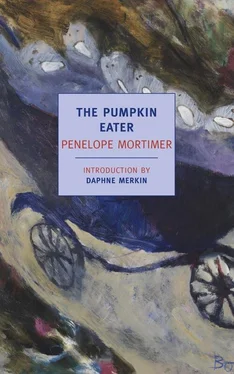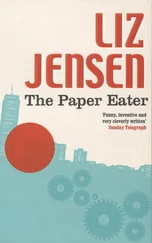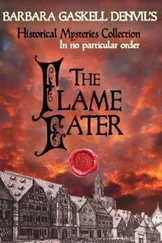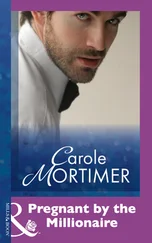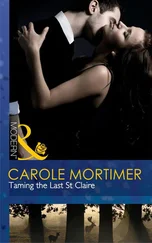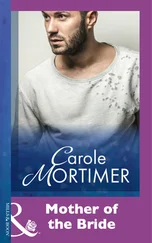“Don’t say anything to Dinah. About the baby, I mean. You won’t, will you?”
“Of course not, dear. But Jake knows, I hope?”
“Yes; Jake knows.”
“It seems so dreadful that he’ll have a grandchild … after he’s gone. He loved the children, you know. Oh, he used to get angry, he used to say you had far too many. But he always loved them, you know that.”
“Yes,” I said. “Come on, now. They’re ready.”
We drove to Luton at ten miles an hour, my father in his disposable coffin leading the way. There was no ashtray in the Daimler, and each time Jake finished a cigarette he wound the window down and threw the stub out. My mother had at last stopped talking. I had never seen Jake so pale, haggard. He sat with his back to the undertakers, his coat collar turned up, smoking with short, savage puffs. Dinah kept coughing. I daren’t say anything. My mother took my hand and held it tightly. At the crematorium there were a few relatives, all the office staff from the factory and three or four of the men; there were representatives from the Rotary Club, the Borough Council, and the British Legion. Dinah turned down Jake’s collar and he gave her a weak smile. In the chapel I stood between Dinah and my mother, but I was only conscious of Jake. “Fight the good fight,” my father’s good friends sang, “with all thy might, Christ is thy strength and Christ thy right…” Jake stood with his hands in his pockets. I felt that his hands and his teeth were clenched; that he was sweating. It could have looked like grief, but I knew that it was anger. “Faint not nor fear,” the Rotarians sang, “his arms are near, He changeth not and thou art dear …” My eyes burned with tears, but not for my father. My mother squeezed my hand. She was glad to see me crying at last.
The doors opened, the coffin and the wreaths moved slowly away into the efficient, unseen furnace. Dinah’s eyes were wide, her lips parted, she was shocked. We knelt, and the clergyman began some droning prayer. “Oh, why can’t he be quiet !” my mother whispered savagely. I wished Jake could have heard this. I felt him looking at me and turned quickly. He stared at me. I smiled. He turned away, covering his eyes with his hand. I had been apprehensive, now I was frightened. I prayed, but not for my burning father. Let it be all right. Make it all right. Stop him looking at me like that.
Immediately we got home, he left, taking with him the bewildered and profanely protesting Dinah. My mother said, “He seems so upset. I wish I could think it was because of George. But I suspect it’s something quite different.”
16
To explain what happened between Jake and myself is impossible, I know that. We didn’t love each other as most people love: and yet the moment I have said that I think of the men and women I have seen clasped together with eyes full of loathing, men and women who murder each other with all the weapons of devotion. There’s nothing new under the sun and even I have read — well, in parts — The Origins of Love and Hate. This is something you can’t find in your magazines, Ireen, though by now, if you’re still alive, you may have learnt it.
One of the greatest differences between Jake and my other husbands is that they were all peaceful men capable of great physical exertion, but Jake is a violent man who wears a sluggard body for disguise. Sleepy, amiable, anxious to please, lazy, tolerant, possibly in some ways a little stupid: this is the personality he wears as a man in the world. His indestructible energy, aggression, cruelty and ambition are well protected.
Perhaps he should never have let me seen them. At the point where I learned what I was fighting, loving, I knew that I was bound, in the end, to lose. I dispensed with the formalities of tenderness, pity, the ceremonial flattery that should go before disciplined massacre. I fought, I suppose, like a woman, uttering distracting cries, making false moves, hitting below the belt. I was incapable of giving up, and unable to escape. But I was no match for Jake. He went on loving me even after I was beaten, propped up with my wound wide open, emptied of memory or hope.
My mother began to be irritated by me: I put things in the wrong place, forgot the fireguard, was extravagant with the Quix. She was also melodramatic about my pregnancy, suggesting that I should drink more gin. It seemed to me that she had recovered sufficiently to be left. I had not heard from Jake since the cremation and although every midnight I went to the telephone determined to call him, I could never make myself do so. It was not that I was frightened of his anger: I would have welcomed it. I was frightened that he would not be there.
I telephoned Dinah and said I was coming back. She said thank goodness, it was all chaos. What kind of chaos, I asked eagerly. She didn’t know. Everything was fine. She had become a Deist. Yes, since the cremation. They were all well, but hurry back, it’s absolute chaos.
It was snowing in London. The house was empty when I arrived. I walked round it looking for signs of life. There were very few. The dolls, bears and horses lay in orderly rows, the diaries and Biros were neat on bedside tables, the gramophones shut up, books back in the bookshelves, even if they were upside down. In Dinah’s room howling guitarists, a copy of Honey , Tindal and Voltaire. In the boys’ room, Gagarin and Glenn, a half-built Meccano windmill. In the nurse’s room, the electric fire left on and a dirty teacup with one cigarette stub in the saucer. In Jake’s study, nothing: the typewriter covered, ashtrays clean, wastepaper basket empty. It was like walking into a stranger’s house, or into a house left desolate by some plague. Who are these people? Who are these children of varying sizes and sexes? Do they feel, do they think, do they look forward to anything, do they remember? Are they happy? They had built snowmen out in the garden. They were an army, self-contained. I was suddenly frightened of them; afraid that when they came back they would find me here, trespassing, and judge me coldly. Across the gardens I could see a great bonfire built by the demolition men. Its flames leapt up, fed by mantelpieces and doors. It crunched them and spat them out, ravenous.
I went up to the attic. Snow had piled on to the skylight and I couldn’t see without the light on. I hauled out a cot and a rubber bath. The rubber had perished and stuck together. There was a high chair and a pair of scales piled up at the far end of the attic, but I couldn’t reach them without moving a dozen suitcases. I heard, far down in the house, the front door slam. I threw the cot and the bath back into the attic and shut the door. What would they think if they found me grubbing about up here? They would think that I had gone crazy.
When Jake and I were first married — after the three eldest children had been taken away — we lived together in the evenings. Like actors, our lives began when the curtain went down. We ate and quarrelled and made love, cooked and drank and talked through the night, while the audience slept. Then, beginning with Dinah, the children began staying up later. They needed help with homework. They needed food. They needed conversation. They needed more and more of our lives. In a useless attempt to keep something for ourselves, we gave them bed-sitting rooms, television sets, new electric fires; but at eight o’clock, then nine o’clock, then ten o’clock they would be sitting in a patient row on the sofa preparing to talk to us or play games with us or perhaps just watch us, their eyes restless as maggots, expecting us to bring them up. My guilt and Jake’s exasperation loaded the atmosphere until, to me, it became unbearable. But the children breathed it in placidly. There were now more great bored ones staying up in the evening than there were small, manageable ones asleep with their teeth cleaned. The nurse went off duty, as she called it, at half past seven, seldom failing to remark that she had had a twelve hour day. We went out, in order to be alone, to the great dirty pub on the corner, to the cinema, anywhere where we might be anonymous and behave, if necessary, unsuitably to our age and situation. That night, after I came home, there was no question of going out. We waited, with bad grace and burning impatience, for them to go to bed.
Читать дальше
